The Different Types of Hearing Loss and What They Mean for Your Treatment Options

Hearing loss is a complex health condition, and it’s different for everyone. At the same time, it’s relatively common; approximately 15% of all American adults over age 18 have some trouble with hearing. While everyone experiences hearing loss slightly differently, it can be grouped into three main categories: conductive hearing loss, sensorineural hearing loss and…
Sharpen Your Hearing and Listening through Audiobooks

Audiobooks are becoming increasingly popular as a means to read your favorite books on the go; it’s easy and convenient to listen while driving or doing chores around the house. Audiobooks enable you to enjoy literature whenever and wherever, without needing to sit down and read. What’s more, they can also be very useful as…
Can Thyroid Disorders Impact Hearing?
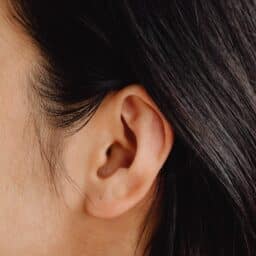
Thyroid disorders are known to affect a variety of bodily functions, including the auditory system. Understanding this connection is essential for timely diagnosis and effective management of hearing-related issues in individuals with thyroid conditions. Your Thyroid and Hearing The thyroid gland plays a critical role in regulating metabolism, energy production, and the development of various…
How Do I Know if I Need a Hearing Test?

Hearing loss is common, with 15% of Americans reporting some trouble hearing. It can be subtle and gradual, making it difficult to notice at first. Often, people become more aware of hearing loss when family members tell them they should get their hearing checked. Paying attention to the early signs can help you act before…
The Different Types of Auditory Processing Disorder

Auditory Processing Disorder (APD) affects the way the brain processes sounds. People with APD can hear but have difficulty understanding auditory information. APD is caused by something affecting the part of the brain that processes sound. There are five different types of APD, each affecting listening and comprehension in unique ways. The five types include:…
Navigating the Emotional Journey of Hearing Loss

Approximately 15% of U.S. adults have hearing loss. If you or a loved one is processing a new hearing loss diagnosis, it’s helpful to recognize the five common emotional stages people go through on their journey to acceptance and treatment. Let’s take a look at these five stages and how you can manage them. 1….
How Does Stress Impact My Tinnitus?

Tinnitus is the presence of a sound in the ears that has no external source. Although the type of sound may differ from person to person, it’s usually described as a ringing or buzzing. Not a condition itself, tinnitus is a symptom of other medical conditions, including but not limited to age and noise-related hearing…
Tips To Get the Most Out of Your Hearing Aids This Holiday Season

Holiday parties are a fun way to relax at the end of the year. Whether you’re attending a huge holiday work party or joining friends for a few celebratory drinks at Steddy’s, you might be wondering how you can best manage your hearing loss for easier communication. Let’s take a look at a few ways…
Thriving at Thanksgiving: Communication Tips for Everyone

The air is crisp, the leaves are falling and Thanksgiving is right around the corner. It’s a time for gathering, gratitude and a lot of conversation. These lively gatherings can sometimes feel more exhausting than fun for those navigating hearing loss, but they don’t need to. With a few simple communication strategies, you can embrace…
How to Advocate for Yourself in Medical Settings with Hearing Loss
Approximately 48 million Americans live with hearing loss, and for those people, visiting a doctor can bring challenges. The potential for miscommunication is higher, and that can make it harder to receive the right care. Being proactive and advocating for yourself is key to ensuring you get the treatment you need. Here are four ways…
How To Address Hearing Aid Non-Use
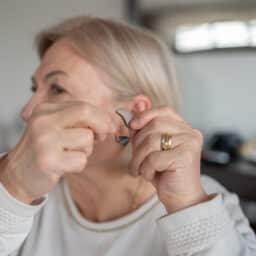
Approximately 28.8 million U.S. adults could benefit from hearing aids. These small but powerful devices pick up and amplify essential speech and background noise to keep the wearer alert and ease communication stress. With all their benefits, it may surprise you to learn that only 16% of people aged 20 to 69 who need hearing…
How Does Inner Ear Damage Affect Hearing?
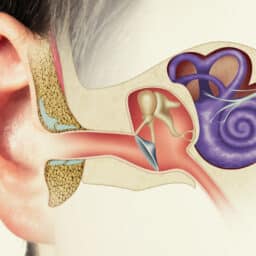
The auditory system is a complex structure working tirelessly to bring sounds like chirping birds or steaming milk at Southern Fuel Coffee to your brain. When one part of the system breaks down, hearing loss can arise. Let’s look at the inner ear’s anatomy and how damage inside it can lead to hearing loss. The…
How Does Diabetes Affect Your Hearing?
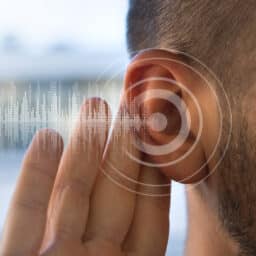
Diabetes, a chronic condition affecting blood sugar processing, can impact various bodily systems, including hearing, when not properly managed. Learn about the connection between the two here. The Connection Between Diabetes and Hearing Loss The inner ear’s blood vessels are particularly sensitive to blood flow. Diabetes-induced poor circulation and high blood sugar levels can inflict…
Active Listening Strategies for People with Hearing Loss

Active listening is technique for fully engaging in and understanding conversations. For individuals with hearing loss, it’s especially beneficial as it can help bridge gaps in communication that may arise from things you missed hearing. Approximately 20% of people worldwide deal with some form of hearing loss, making these techniques relevant and necessary. Techniques to…
Is My Hearing Loss Temporary or Permanent?
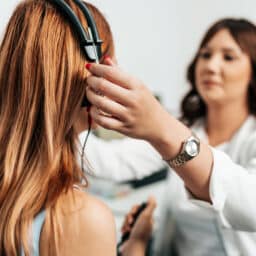
Nearly everyone has experienced muffled hearing at least once in their life. When this muffled hearing is temporary, it is not always a cause for concern. However, some instances of muffled hearing are permanent—known as permanent hearing loss. Knowing how to differentiate between temporary and permanent hearing loss is essential in ensuring you’re on the…
How to Combat Listening Fatigue: Tips for People with Hearing Loss

Listening fatigue, also known as ‘auditory fatigue’ or ‘mental fatigue,’ results from ongoing strenuous efforts to listen with hearing loss. For individuals with hearing loss, the brain has to work much harder to process sounds and speech, especially in the presence of distracting background noise. The constant strain of understanding those around you leads to…
How Can a Concussion Affect Your Ability to Process Sound?

A concussion is a traumatic brain injury caused by a blow, bump or jolt to the head or by damage to the body that causes sudden movement to the head. Common symptoms of a concussion may include but are not limited to: While many concussions are considered mild, moderate or severe cases may exhibit trouble…
Three Reasons Hearing Loss Causes You to Isolate From Others

It’s not uncommon for people with hearing loss to begin to isolate themselves from the world around them. Unfortunately, doing so can worsen their mental and physical health and put them at a greater risk for: Let’s look at three common reasons hearing loss can lead to isolation. Crowded Places Make It Hard to Hear…
How to Prevent Hearing Loss in Young Adults

It’s common to associate hearing loss with older age. While it’s true that your risk of hearing loss increases as you get older, people of any age can develop the condition. In fact, research has found that a significant number of young adults have noise-induced hearing loss. Young Adults at Risk of Noise-Induced Hearing Loss…
What’s The Link Between Hearing and The Brain?

Untreated hearing loss can have many negative consequences. Research has shown that it can affect the way your brain works and impact cognition. Research on How Hearing Loss Affects Your Brain Multiple studies have found a connection between hearing loss and brain function. According to The National Library of Medicine, “There is ample evidence linking…
Here’s How Untreated Hearing Loss May Affect Your Memory

Untreated hearing loss can have a variety of negative consequences, including affecting your memory. Research on Hearing Loss and Memory Multiple studies have found a connection between hearing loss and memory problems, as well as cognitive decline. Three Reasons Hearing Loss Can Worsen Memory Use Hearing Aids to Help Your Memory Hearing aids enhance your…
Untreated Hearing Loss May Leave You More Vulnerable to Falls

Leaving your hearing loss untreated can have several other negative consequences on your health. Research indicates that it may make you more vulnerable to falls. Study Shows Even Mild Hearing Loss Can Increase Fall Risk Though you might assume that only severe cases of hearing loss would be able to affect balance, research has…
Here’s How You Can Make the Most of Video Games with Hearing Loss

The National Institute on Deafness and Other Communication Disorders report that “One in eight people in the United States (13 percent, or 30 million) aged 12 years or older has hearing loss in both ears, based on standard hearing examinations.” If you have hearing loss, it can affect many aspects of your life. Believe it…
What To Do if You’re Worried You Have Hearing Loss

Though some people have hearing issues from birth, for most of us, hearing loss can sneak up gradually. It may be because of age or chronic exposure to loud noise or some combination of different factors. Let’s go over some of the early signs of hearing loss, as well as what to do if you’re…
Has Your Child’s Hearing Loss Been Misdiagnosed as a Learning Disability?

The CDC reports that approximately 15% of school-aged children ages 6 to 19 have a hearing loss of at least 16 dB in one or both ears. With the right interventions, children with hearing loss can be just as successful in school as their peers who have normal hearing. However, left undiagnosed and untreated, hearing…
What Jobs Are Most at Risk for Hearing Loss?

The highest risk of noise-induced hearing loss (NIHL) is related to exposures in the workplace, which affects about 7% of the population. Below we review how loud sounds cause damage, which professions are most likely to experience this type of hearing loss and how you can protect yourself if you work in a noisy field….
WHO Sets New Standard of Safe Listening

The World Health Organization (WHO) directs international health within the United Nations and leads partners in global health responses. In preparation for World Hearing Day 2022, the WHO has released a new international standard for safe listening practices at venues and events. These standards are aligned with the theme of this year’s World Health Day:…
Is There a Connection Between Hearing Loss and Diabetes?

Research has shown a link between hearing loss and diabetes. One study showed that people with diabetes are twice as likely to experience hearing loss as people without the condition. The same study showed that people who were classified as prediabetic had a 30% higher rate of hearing loss compared to those with normal blood…
Tips for Dealing with Hearing Loss at Work

According to the Centers for Disease Control and Prevention (CDC), approximately 12% of the U.S. working population has hearing difficulty. If you are affected by hearing loss and are in the workforce, you’re entitled to accommodations, per the Americans with Disabilities Act (ADA). We review some of the accommodations that may benefit you below. Request…
Balance & Hearing: What’s the Connection?

If you’re experiencing problems with feeling imbalanced, being unsteady on your feet or experiencing vertigo, you may have a vestibular disorder. Your vestibular system, like your auditory system, is housed within your inner ear. If you experience trouble with one of these systems, both may be affected, which can also affect your hearing. We review…
How to Host a Hearing Loss-Friendly Dinner Party

‘Tis the season for get-togethers with friends and family. While this is a joyous time of year, it can also be challenging for the many people with hearing loss. Below we review four tips for hosting a hearing-loss friendly holiday dinner party so all your guests feel included in the conversation. 1. Designate a Quiet…
The Link Between Osteoporosis & Hearing Loss
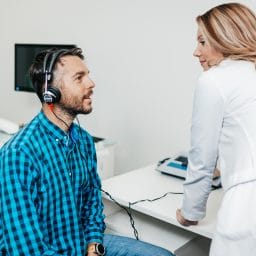
Hearing loss has been linked to a number of health conditions including, balance problems, cardiovascular disease, diabetes and depression. Research shows yet another condition may be linked: osteoporosis. We explore this link below. What Is Osteoporosis? Osteoporosis is a condition characterized by weak and brittle bones. Symptoms include: Bones that break more easily than expected…
Noise-Induced Hearing Loss
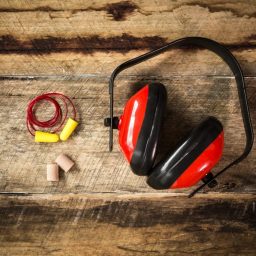
What Is Noise-Induced Hearing Loss? Noise-induced hearing loss is the second most common form of hearing loss (ranking behind presbycusis, hearing loss related to normal aging), and is the most preventable type. How Can Sounds Hurt Your Ears? Background sound is a constant in our busy lives. Normally, background noises are at safe levels that…
Sudden Sensorineural Hearing Loss

For most people who experience hearing loss, the condition comes on gradually over a period of years. In rare cases, an abrupt loss of hearing occurs with little or no warning. This condition is known as sudden sensorineural hearing loss (SSHL). What is Sudden Deafness? Sudden deafness is defined as a hearing reduction of 30…
Unilateral Hearing Loss

What is Single Sided Deafness? Sometimes referred to as unilateral hearing loss, single sided deafness is a condition in which an individual experiences hearing loss in only one ear but can hear normally out of the other ear. While the majority of patients with a hearing impairment suffer from bilateral (two-sided) hearing loss, SSD is…
The Risks of Untreated Hearing Loss
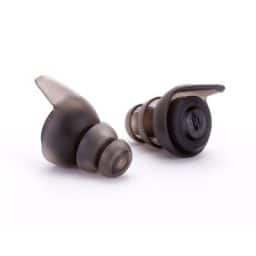
The Risks of Untreated Hearing Loss Facing the reality of hearing loss can be challenging in many ways. Oftentimes, individuals can be in denial of their hearing loss and refuse to take immediate action, often waiting 7 to 10 years from their initial diagnosis. However, there are many underlying risks that pose a threat…
How to Maintain Ear Health and Avoid Impaction

Excess wax and buildup in your ears can be frustrating. However, earwax usually disperses naturally without manual cleaning. Many people still attempt to clean their ears themselves which can lead to infection. Cleaning your ears improperly may cause even more health issues and can damage your hearing. However, if earwax does not disperse naturally and…
Signs & Reasons for Hearing Loss
Hearing loss is a common occurrence that affects many individuals every year. The Mayo Clinic projects that “About one-third of people in the United States between the ages of 65 and 75 have some degree of hearing loss. For those older than 75, that number is approximately 1 in 2.” While there are several ways…
Hearing Loss & Cognitive Decline
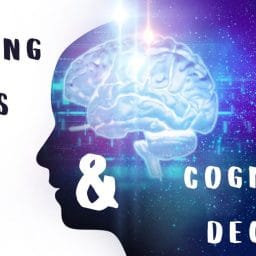
Learning disabilities are often misdiagnosed. It is a known fact that hearing loss can impact one’s ability to learn properly. This is especially true of how children hear sounds. How does hearing actually work? How Hearing Works Hearing isn’t just about sounds that you pick up with your ear. In fact, hearing takes place in…
September is World Alzheimer’s Month

Alzheimer’s disease and dementia are projected to impact 152 million people world-wide by 2050. Alzheimer’s disease is a brain condition that impacts areas which control thought, memory, emotion and language. But globally, two out of three people believe there is little to no understanding of dementia in their countries. Every September, World Alzheimer’s Month makes…
Addressing Hearing Loss May Improve Care of Older Adults
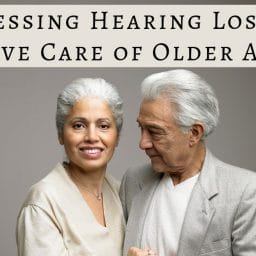
The National Institute on Deafness and Other Communication Disorders, otherwise known as NIDCD, reports that nearly 1 in 3 people between 65 and 74 years old has hearing loss. Moreover, nearly half of the people who are older than 75 years old has difficulty hearing. Age-related hearing loss can be a very difficult condition for…
Things People with Hearing Loss Wish You Knew
When a person is dealing with hearing loss, they are using everything they have to stay engaged in conversation. Even if they are wearing hearing aids and can lip read, they are working more than those with regular hearing to keep up and stay engaged. Let’s stay informed and include some strategies for dealing with…
May is Better Speech and Hearing Month!
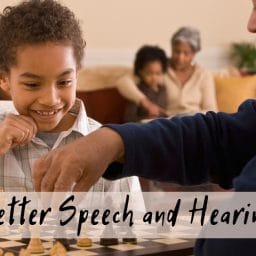
Each May, Better Hearing & Speech Month (BHSM) is an annual event promoted by the American Speech-Language-Hearing Association (ASHA) to raise awareness about communication disorders. For 2019, their theme is “Communication Across the Lifespan.”. We hope this inspiring story of the local rising baseball star Danton Hyman will inspire you to take care of your…
Talking about Hearing Loss: Why Your Disclosure Method Matters
If you’ve recently been treated for hearing loss, then you are aware of the many benefits that hearing aids bring. Now that you have accepted it within yourself, it should be an easy step to inform the other people in your life, right? It turns out that the way you tell people has more of…
The Benefits of Treating Hearing Loss

There are many benefits to treating your hearing loss. You can communicate with others effortlessly, stay socially active, and improve your overall well-being. The potential effects of untreated hearing loss are equally numerous, from social isolation, to depression, to an increase risk of falls. Further down the line, some researchers have linked hearing loss with…
Occupational Hearing Hazards
Hearing loss is the third most common medical condition in the United States, affecting people of all ages, especially those over the age of 65. However, did you know that hearing loss is also a common workplace injury? The US Occupational Safety and Health Administration (OSHA) estimates that 30 million people are exposed to hazardous…
Recognizing the Signs of Hearing Loss
The Centers for Disease Control and Prevention (CDC) estimates that hearing loss effects one-third of people aged 65-74 and one-half of people over the age of 74. Shockingly, hearing loss also effects about one fifth of young adults. If hearing loss is so common, why are so few people seem to be treating their hearing…
